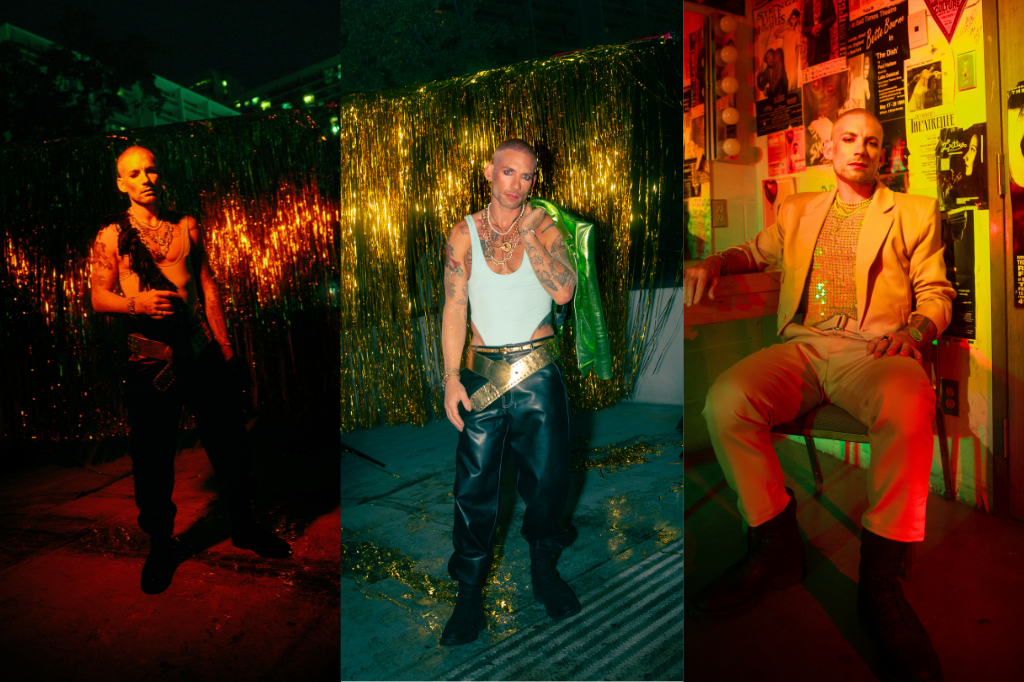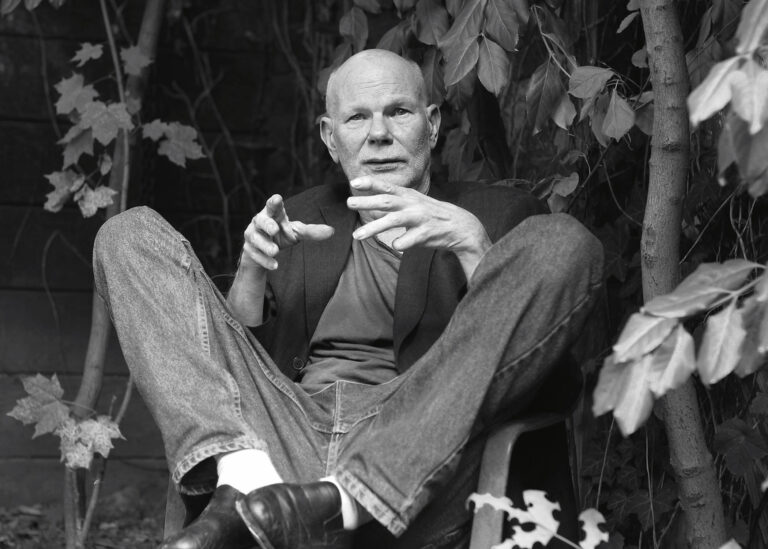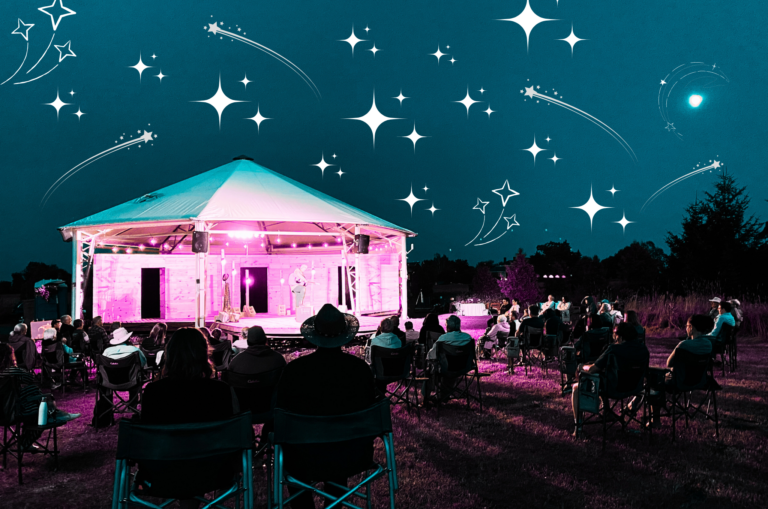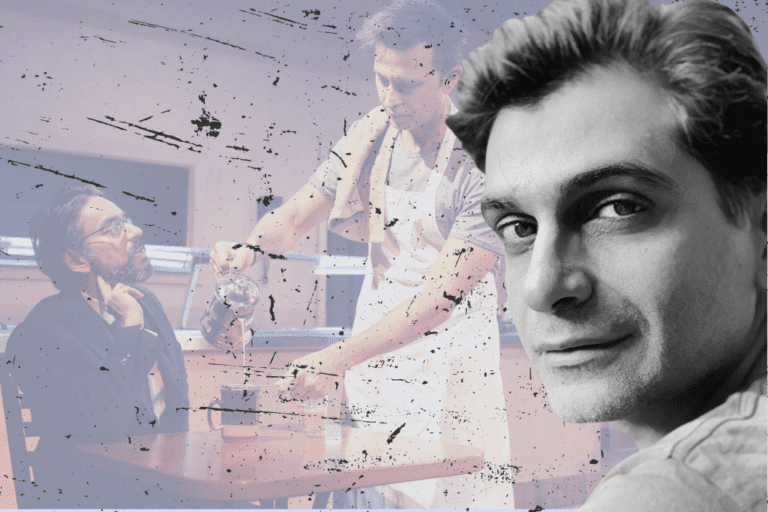As the new artistic director of Buddies in Bad Times, ted witzel will ‘connect two generations of queers’
After an extensive search, Buddies in Bad Times Theatre announced in August that ted witzel will be taking the reins as artistic director on October 10.
witzel brings a diverse mix of experience to the role, having studied at York University, the National Theatre School of Canada, and the SDA Bocconi School of Management in Milan. He’s helmed large- and small-scale productions across Canada and Europe, and spent four years as an associate artist at the Stratford Festival. His appointment also signals a demographic change for the space; at 38, he’s Buddies’ first artistic director to be younger than the 45-year-old institution itself.
The last few years have been rocky for Buddies. The company has been without an artistic director since Evalyn Parry left the position in August 2020 amid complaints of institutional mistreatment by a number of artists. The company has since implemented key organizational changes aimed at increasing accessibility and improving working conditions for both visiting artists and staff.
Despite these challenges, financial collapse was averted — a testament to the tireless work of managing director Daniel Carter and the rest of the Buddies team. Together, they’re offering witzel the rare chance to take the leadership role at an arts institution that’s actually in good financial health.
I caught up with witzel to discuss his plans for Buddies, the path to community healing, and being a geriatric millennial.
This conversation has been edited for length and clarity.
Chris Dupuis: Things have been pretty tough at Buddies recently. When I heard about your appointment, my first thought was, “why would anyone want this job?” So, why did you want this job?
ted witzel: I went back and forth about whether to put my name in. I was convinced to apply after I learned who was on the hiring committee, and how the process was designed. It was probably more of an emotional decision than a logical one. I love the place and it’s where I figured out a lot of things — not just artistically, but in terms of my politics and my identity.
Also, Buddies is a unique space. There are a lot of major global theatre centres without an anchor queer institution in their arts ecology. Buddies has a special ability to drive the discourse around queerness as an aesthetic and a form, and that can fuel a conversation that feels really unique.
When Brendan Healy got the position in 2009, I saw some online chatter to the effect of, “oh great, another white man is leading Buddies!” I’ve not seen anything like that since your appointment was announced. But I’m curious to hear your thoughts about stepping into the job with the body you inhabit.
It’s something I had a lot of conversations about, and I think I actually said in my cover letter that I wasn’t sure whether the community would prefer someone who brings a different set of intersections to the role. A leader’s positionality will absolutely mean something to the people that Buddies serves.
What I can say is that curation is going to be a fairly small part of my job. I was clear from the beginning that I want programming to happen through a collectivist model, rather than imposing a particular artistic agenda. My focus is going to be on how to build the infrastructure, relationships, and business models that allow the company to operate sustainably.
I’m not going to ask you to comment on things that happened before your time. But there’s obviously been a huge amount of pain and rage in the community because of what’s gone on there over the last few years. Do you have any plans to address that?
There are processes underway designed to implement organizational change and offer some healing, which were going on while we were applying for the job. Right now, I would say the staff and the board feel aligned in terms of the shifts that need to happen.
On a more emotional level, I think the pain and rage moves in a lot of directions, which speaks to the fact that there are a lot of folks out there who want to know Buddies is a place for them. Because we’re always working with finite resources of time, space, and money, people might be inclined to view these conversations as zero-sum.
Without sounding Pollyanna about it, a lot of the pain I see comes from a lack of intergenerational understanding. As queer people, AIDS really fucked up the exchange between different age groups in our community. I think that lack of dialogue is something Evalyn [Parry] really tried to address with The Youth/Elders Project and the programming surrounding it. Some of the things younger queers view as abrasiveness are the exact tactics older folks needed to secure many of the rights we have now.
Having said all that, one of the things that really excites me about Buddies is that it’s both a heritage institution that’s been around for 45 years and a place where queer futures are being cooked up. I hope, as a “geriatric millennial,” I can be a connecting point between those generations of queers.
The last thing I wanted to ask about was the question of resources. Obviously, they will always be always finite. At the same time, if there’s no move to increase resources, there will never be greater inclusion. We’re just changing who and what is excluded. I’m curious to know your take on that and whether you see the possibility to expand what’s available to the community at the institution.
Buddies has a unique set of opportunities that allow it to push beyond the limits placed on a mid-size theatre in a major Canadian city. Usually, the revenue possibilities are ticket sales, public funding, foundations, and corporate partnerships.
But we have an extra leg-up because we have the bar as a source of income. One of the things I’m thinking about is how we build programming in that space to increase revenue. Nightlife trends come and go. But there’s no reason a queer party space can’t be a creative site as well as a way to fund art.
You can learn more about Buddies in Bad Times Theatre here.















Comments